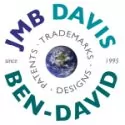An application to register the trademark, "PLAY THAT MOVES YOU", in International Class 28, for goods relating to playground equipment (Israel Trademark Application No. 318286) was submitted by BCI Burke Company, LLC on July 3, 2019. The Applicant requested registration based upon the Applicant's trademark registration in their home country, the USA.
The Examiner refused the registration on the grounds that the application lacked distinctiveness, and was descriptive of the goods, contrary to the requirements of Section 8 of the Israel Trademarks Ordinance [New Version] 5732-1972 (the "Ordinance"), which sets out:
"(a) No mark is eligible for registration as a trademark unless it is adapted to distinguish the goods of the proprietor of the mark from those of other persons (a mark so adapted being hereinafter referred to as a "distinctive mark").
Furthermore, the Examiner rejected the Applicant's request to accept the application based upon the prior registration in the US arguing that the mark lacked even the minimal amount of distinctiveness necessary for registration under Section 16(a) of the Ordinance, the "telle-quelle" provision, which stipulates that:
"...the Registrar shall not refuse to register a trademark that is registered as a trademark in its country of origin unless any of the following apply ...(2) The mark lacks any dimension that gives it a distinctive characteristic"
The Applicant appealed the decision of the Examiner, and the case was heard before the Deputy Director of the Israel Patent Office ("the Judge").
In the appeal, the Applicant argued that the trademark did not directly describe the goods; rather it is suggestive and has multiple meanings due to the word "moves". In addition, the Applicant argued that when requesting acceptance of a mark in accordance with Section 16 of the Ordinance, it is enough that the mark has some sort of distinctiveness, any such distinctiveness above zero, to be eligible for registration. This is commonly referred to as the "scintilla of distinctiveness". The Applicant asserted that the mark contained a scintilla of distinctiveness, and was thus eligible for registration under Section 16 of the Ordinance.
In her decision, the Judge stated that the requested mark was in fact a multi-word slogan and slogans by their nature are inherently descriptive and lack distinctiveness. The question that needs to be asked to determine if a slogan is eligible for registration is: would the consumer immediately correlate the slogan with the Applicant? Alternatively, has it acquired distinctiveness through extensive use? A slogan, which is laudatory and promotional by nature, would only be eligible for registration if it contains some sort of distinctiveness that would cause the consumer to identify it with the commercial origins of the goods, or has acquired distinctiveness by use.
One such example of a slogan that was successfully registered is IL TM 203895 for the Hebrew equivalent of "Gidron baking the freshness for you". The Registrar deemed it eligible for registration due to the inclusion of the company's name, and the nonsensical meaning of the phrase. However, the terms "baking" and "freshness" were disclaimed. Some well-known slogans that were successfully registered under Section 16 of the Ordinance include McDonalds "I'm lovin it", IL TM 200350; and "Party like a rockstar", IL TM 204804, which was accepted due to the inclusion of the Applicant's registered mark "ROCKSTAR". However, the term "party" was disclaimed.
In the present case, the Judge ruled that the requested mark inherently lacked distinctiveness, and that acquired distinctiveness through use in Israel was not proven. The Judge stated that the various meanings given the word "moves" were all related to the goods of the requested mark, and therefore did not add any distinctiveness to the requested mark. The Judge determined that the mark is a laudatory, commercial slogan, without any correlation to the origin of the goods.
The Judge also noted that use of marks such as slogans which are devoid of distinctiveness alongside other marks of the same applicant are an indication that the applicant himself does not rely on the slogan as an indication of origin. As the Judge noted, the slogan is advertised below the Applicant's primary mark "Burke", perhaps out of concern that the consumer would not identify the origin of the product by means of the slogan alone.

The Judge concluded by ruling that the requested mark completely lacked distinctiveness and there is nothing in the mark that would lead the consumer to the Applicant as the origin of the goods. Therefore, not only did the Judge refuse registration of the requested mark under Section 8 of the Ordinance, she also refused registration under Section 16 of the Ordinance, stating that the requested mark lacked even a scintilla of distinctiveness.
This ruling imparts a couple of important messages. Registration under Section 16, the telle-quelle provision, is not a slam dunk. Although the Judge acknowledges in this ruling that the bar for registration under Section 16 is lower than that for registration under Section 8, nonetheless in this case, the mark was determined to be completely devoid of any distinctiveness. Although requesting registration under Section 16 of the Ordinance is a good fallback position, it may prove difficult to rely upon when requesting registration of marks that the Registrar views as inherently devoid of distinctiveness, unless it can be proven that the consumer would be able to easily identify the origin of the goods or that acquired distinctiveness through use can be demonstrated.
Furthermore, while a mark can lack distinctiveness even when not a slogan, when the mark in question is a slogan, and if it is used solely in conjunction with the name of a company which is clearly marked as such, the chances of registration are slim indeed!
The content of this article is intended to provide a general guide to the subject matter. Specialist advice should be sought about your specific circumstances.

